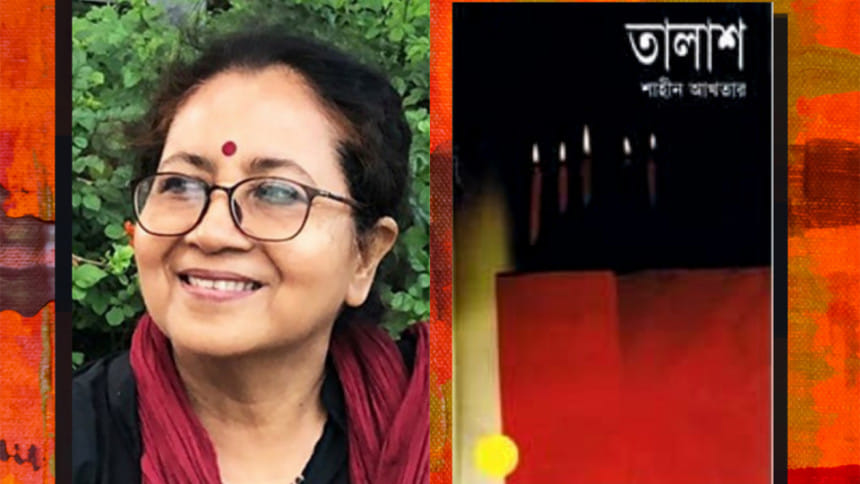Shaheen Akhtar wins Asian Literary Award 2020

Bangladeshi author Shaheen Akhtar has been awarded the 3rd Asian Literary Award for her novel Talaash (Mowla Brothers, 2009), which depicts the lasting suffering of Birangona women—survivors of sexual violence during the 1971 Bangladesh liberation war.
Sponsored by the Asia Cultural Centre in Gwangju, South Korea, the award was announced on November 1 at the 2020 Asian Literature Festival.
"Imperialism and colonialism, war and violence, the deceptions of war criminals, mistreatment of independence fighters, and ongoing ill-treatment of rape victims are all interwoven in the narrative of the novel," Kim Nam-il, novelist and chair of the award committee, said at the press conference. "Talaash asks fundamental questions about this history. It addresses the disconnects between 'brave women' and 'prostitutes,' 'official reverence' and 'informal contempt,' 'the sublime' and 'the scandal.' A scene in which the protagonist, Maryam, who finds herself caught in the snare of these dualities, enters another world in which she and a companion enjoy the camaraderie of fellow Birangonas, holds its own as one of the most sublime scenes in contemporary literature."
Nam-il equates the novel with Svetlana Alexievich's The Unwomanly Face of the War, calling it "one of the greatest feminist anti-war docu-novels of our time".
Born in 1962 and a graduate of Economics from the University of Dhaka, Shaheen Akhtar is renowned for her previous novels Palabar Path Nei and Sokhi Rongomala, which was translated as Beloved Rongomala (Bengal Lights Books, 2018) by Shabnam Nadiya. In 2015 Akhtar was awarded the prestigious Bangla Academy Shahitya Puroshkar, as well as the Akhtaruzzaman Elias Kothashahitya Award for her novel Moyur Shinghashon. Her latest novel Ashukhi Din explores the Partition of Bengal. The author currently works as a human rights professional at Ain O Salish Kendra.
While receiving the award, Shaheen Akhter shared, "During the nine months of war, [Birangona women] were raped by Pakistani soldiers—but how have they been treated in the 30 years since then, and who is responsible? That was my primary quest in writing this novel; it is a question inherently intermingled with the way our society approaches our history and its legacies, and one I think all of us need to reflect on, if we want to move onto another level as a society,"
This year's award committee—comprising literary critic Kim Hyoung-jung, professor Kim Tae-won, professor Chung Kyung-woon, poet Kwak Hyo-hwan, and novelist Kim Nam-il—limited their selection pool to novels that have been translated into Korean and that are written by women writers exploring the 2020 festival's feminist themes. Talaash was translated into Korean by Seung Hee Jeon and Farhana Shashi, published by Asia Publishers.
Shaheen Akhter will be awarded a prize money of 20 million won (USD 17,500) and Talaash will be adapted as a performance piece at the next Asia Literature Festival. The novel, which was selected as the Best Book of the Year in 2004 by Prothom Alo, is also available in English as The Search (Zubaan Books, 2009), translated by Ella Datta.
For more book-related news, follow fb.com/DailyStarBooks, @thedailystarbooks on Instagram, and @DailyStarBooks on Twitter. Stay with us in print every Thursday!

 For all latest news, follow The Daily Star's Google News channel.
For all latest news, follow The Daily Star's Google News channel. 



Comments